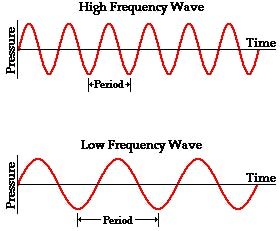Why do harmonies sound good?
The short answer
Musical harmony with a pleasing sound is called consonant harmony. Consonant harmony sounds good because it is mathematically balanced, culturally ingrained, and easier for our brains to process.
The long answer
Harmony in music is when two or more notes are played at the same time. But some things sound “harmonious” and other don’t.
That’s because there are two types of musical harmony: consonant and dissonant harmonies. The difference essentially it boils down to what sounds like a singular tone (even though it's a combination of tones) and what sounds like multiple tones played randomly together. When a harmony sounds “good,” we call it a consonant harmony.
🔊Not sure what I mean? Here are some examples of what consonant and dissonant harmonies sound like:
There are three main reasons why consonant musical harmony sounds pleasing to us:
Reason #1: Consonance. We like things that are mathematically balanced.
Image taken from ScienceBuddies.org.
Harmony is just math. You've probably heard of an octave which has a ratio of 2:1 (one note placed twice as high as the other). When those two tones are played together, they sound pleasing and almost like one singular tone. The chart above is an example of a 2:1 tone ratio, as the top wave completes 2 cycles for every 1 cycle the bottom wave does. Other pleasing harmonies like the "perfect fifth" follow a nice, round ratio (3:2).
There is symmetry and balance with the overlap of these notes – and we like that. As scientist Alan Lightman puts it, "Symmetry represents order, and we crave order in this strange universe we find ourselves in... [It] helps us make sense of the world around us".
Dissonance is the opposite. When notes are played together that do not have balanced ratios, the sound waves clash and interfere with one another. This results in a phenomenon called "beating," which isn't particularly pleasing. Watch the video I made of two tones (440 Hz and 441 Hz) using an online harmony generator to hear what beating sounds like.
Reason #2: Familiarity. We like things that we've heard before.
There's also a familiarity to consonant harmonies that acts as a feedback loop:
While there are definitely different cultural preferences for harmonies, consonant ones are widely loved and used in different types of music. Musicians often use consonant harmonies to elicit feelings of joy, celebration, triumph, and safety. Dissonant harmonies are used to create feelings of unease, fear, and discomfort (so they aren't as frequently used).
Reason #3: Neurological rewards. Our brain likes harmony
Our love of consonant harmonies isn't a conscious preference – our brains are wired to like them. Because of the balanced sound wave ratios of consonance, it's easier for our brains to process them for us to hear. Comparatively, dissonance comes in as multiple, erratic waves that are challenging to process.
We're simply born to hear the contrast and prefer consonance. Fun fact: Even babies and monkeys and identify the difference between consonant and dissonant harmonies.
Curious about how the world works?
Today You Should Know is a free, weekly email newsletter designed to help you learn something new every Friday.
Subscribe today 👇
Sources
BBC. (2017, February 19). Why we find symmetry so soothing. BBC Three. https://www.bbc.co.uk/bbcthree/article/6adaed45-2f21-4a7b-942a-5c40a7181dd6
Chanda, M. L., & Levitin, D. J. (2013). The neurochemistry of music. Trends in Cognitive Sciences, 17(4), 179–193. https://doi.org/10.1016/j.tics.2013.02.007
Fishman, Y. I., Volkov, I. O., Noh, M. D., Garell, P. C., Bakken, H., Arezzo, J. C., Howard, M. A., & Steinschneider, M. (2001). Consonance and dissonance of musical chords: Neural correlates in auditory cortex of monkeys and humans. Journal of Neurophysiology, 86(6), 2761–2788. https://doi.org/10.1152/jn.2001.86.6.2761
Grossman, L. (2011, September 19). Why harmony pleases the brain. New Scientist. https://www.newscientist.com/article/dn20930-why-harmony-pleases-the-brain/
Koelsch, S. (2014a). Brain correlates of music-evoked emotions. Nature Reviews Neuroscience, 15(3), 170–180. https://doi.org/10.1038/nrn3666
Multiple Tone Generator. Online Tone Generator. https://onlinetonegenerator.com/multiple-tone-generator.html
Pankovski, T., & Pankovska, E. (2018, February). New research reveals why some harmonies sound good, but others don’t. Elsevier. https://www.journals.elsevier.com/biologically-inspired-cognitive-architectures/news/new-research-reveals-why-some-harmonies-sound-good-but-other


